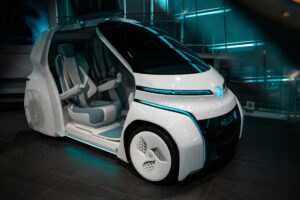Have you ever imagined a world where your car could drive itself, just like something out of a sci-fi movie? Well, that future may be closer than you think.
The advancement of autonomous vehicle technology has been gaining significant momentum in recent years, with companies like Tesla, Waymo, and Uber at the forefront of this groundbreaking innovation. According to a recent study by Allied Market Research, the global autonomous vehicle market is projected to reach $556.67 billion by 2026, growing at a CAGR of 39.47% from 2019 to 2026.
One key player in this space is Tesla, whose CEO, Elon Musk, has ambitious plans for the company’s self-driving technology. In a recent tweet, Musk declared, “Tesla with Full Self-Driving is about to become reality. It is called Full Self-Driving because it’s damn good.” This bold statement has sparked excitement among Tesla enthusiasts and investors alike.
However, the road to fully autonomous vehicles is not without its challenges. Safety concerns, regulatory hurdles, and ethical dilemmas remain significant obstacles that must be overcome before these self-driving cars can become a mainstream reality.
Despite these challenges, the potential benefits of autonomous vehicles are vast, including increased road safety, reduced traffic congestion, and improved mobility options for individuals with disabilities. As we continue to journey toward a future where cars drive themselves, it is essential to consider not only the technological advancements but also the broader societal implications of this transformative shift in transportation.



